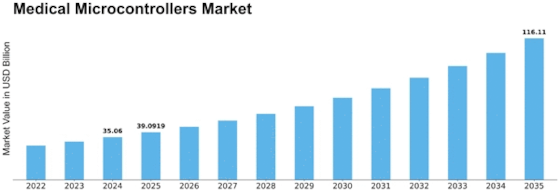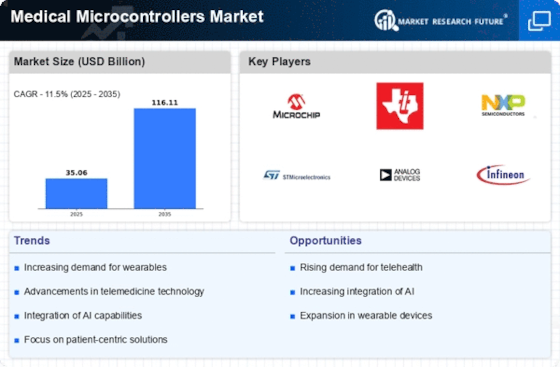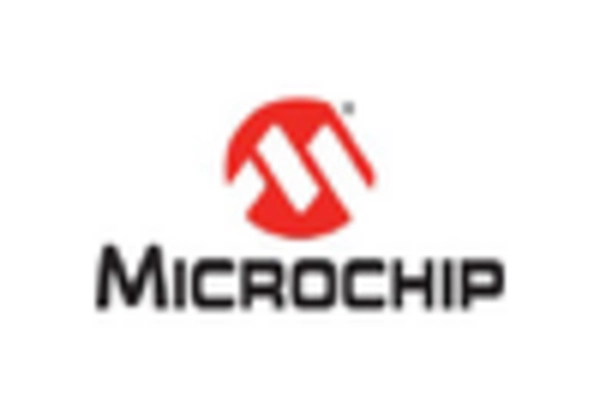Medical Microcontrollers Size
Medical Microcontrollers Market Growth Projections and Opportunities
The Medical Microcontrollers Market is significantly influenced by various market factors that play a pivotal role in shaping its growth trajectory. One of the key drivers is the increasing prevalence of chronic diseases, which has led to a growing demand for advanced medical devices that incorporate microcontrollers. These tiny computing units are integral to the functionality of medical devices, ensuring precise and efficient performance. As the global population continues to age, the incidence of chronic conditions such as diabetes, cardiovascular diseases, and respiratory disorders is on the rise. Consequently, there is a heightened need for innovative medical solutions, driving the demand for medical microcontrollers.
In addition to the rising prevalence of chronic diseases, technological advancements in healthcare are propelling the market forward. The integration of microcontrollers in medical devices allows for enhanced capabilities, improved accuracy, and real-time monitoring. These technological innovations not only benefit patients by providing more effective treatments but also streamline healthcare processes for practitioners. With continuous research and development efforts, manufacturers are consistently introducing cutting-edge medical devices that rely on sophisticated microcontroller technology. This surge in technological progress acts as a catalyst for market growth, as healthcare providers seek state-of-the-art solutions to deliver optimal patient care.
Furthermore, regulatory support and compliance standards significantly impact the dynamics of the Medical Microcontrollers Market. Stringent regulations imposed by health authorities worldwide dictate the quality, safety, and efficacy of medical devices. Manufacturers in this market must adhere to these standards to ensure product approval and market entry. Regulatory compliance is crucial in building trust among healthcare professionals and end-users, fostering a conducive environment for market expansion. Conversely, non-compliance can lead to delays in product launches and increased scrutiny, hindering market growth.
Market competition is another pivotal factor influencing the Medical Microcontrollers Market. The presence of numerous players, ranging from established industry giants to emerging startups, intensifies competition and drives innovation. Companies vie for market share by focusing on product differentiation, pricing strategies, and geographical expansion. This competitive landscape fosters a dynamic market environment, encouraging companies to invest in research and development to stay ahead of the curve. Moreover, strategic collaborations, mergers, and acquisitions are common in this market as companies seek to strengthen their market position and broaden their product portfolios.
The economic landscape also exerts a considerable impact on the Medical Microcontrollers Market. Economic factors such as healthcare spending, reimbursement policies, and government initiatives play a crucial role in shaping market dynamics. Countries with robust healthcare infrastructures and favorable economic conditions tend to witness higher adoption of advanced medical technologies, including those powered by microcontrollers. Conversely, economic uncertainties and budget constraints can impede market growth in certain regions, affecting the accessibility of advanced medical devices.

















Leave a Comment